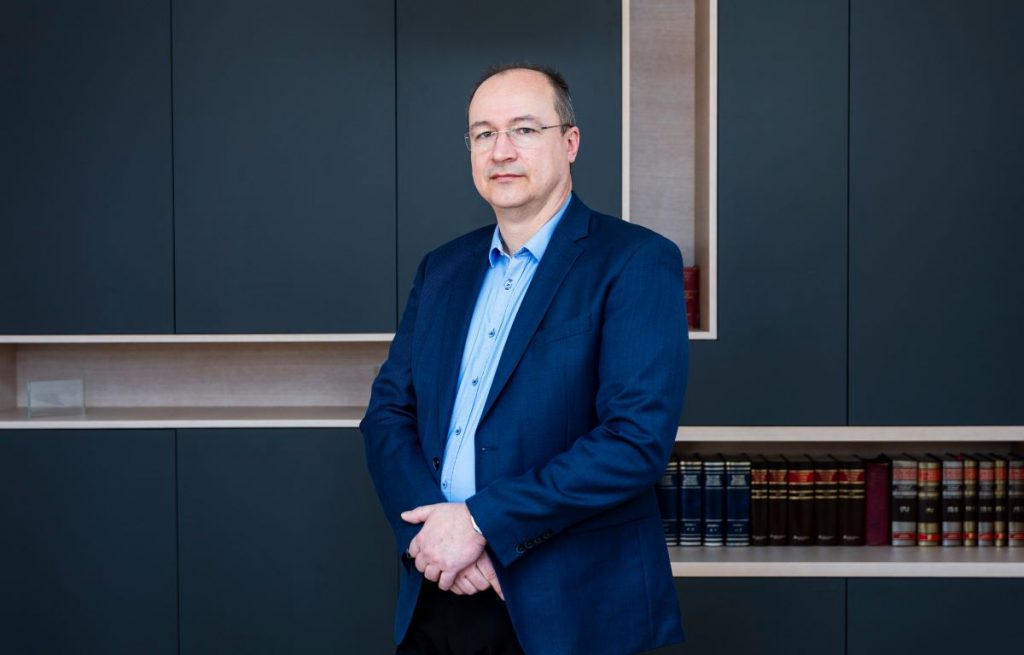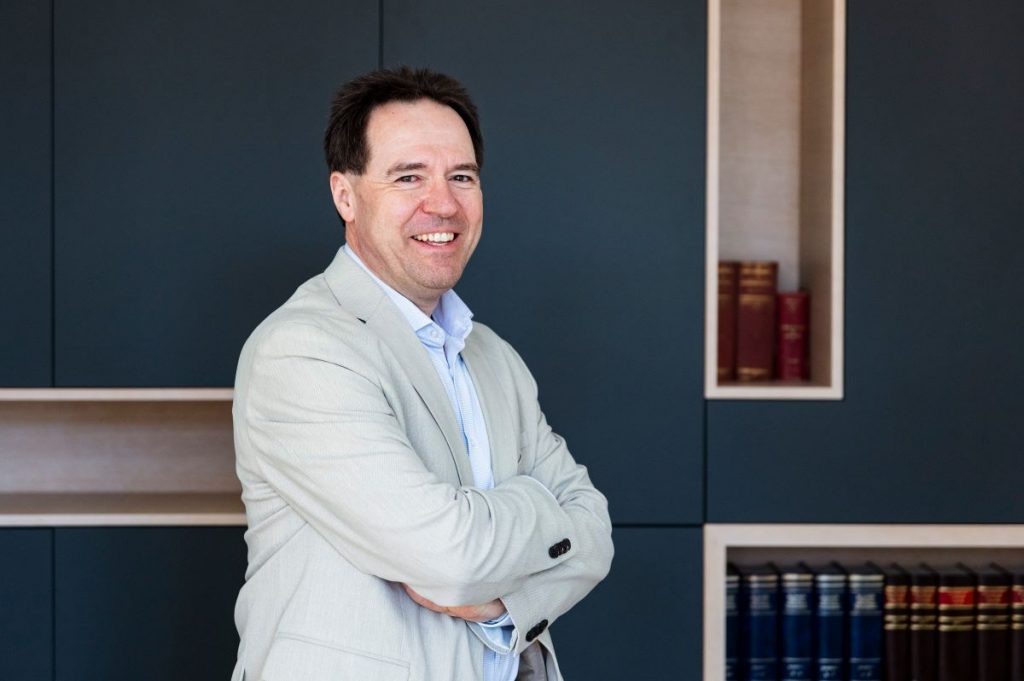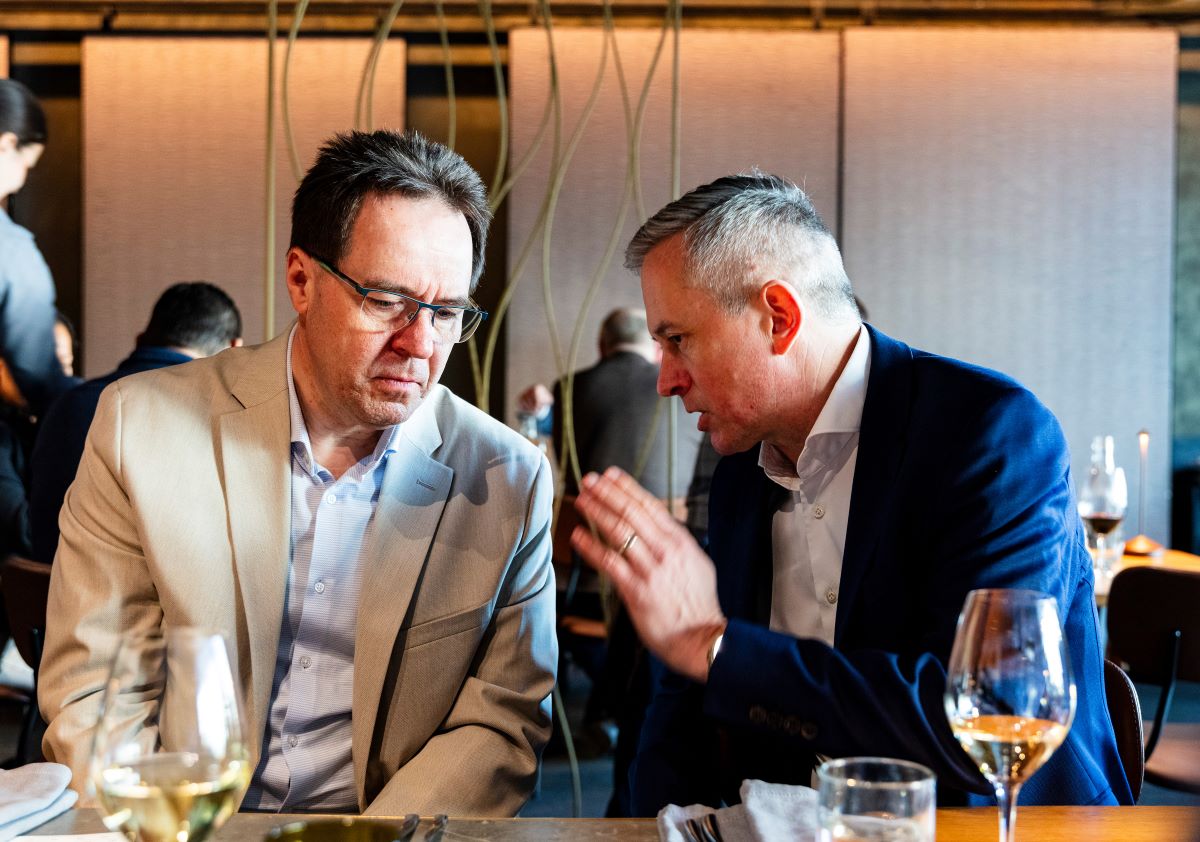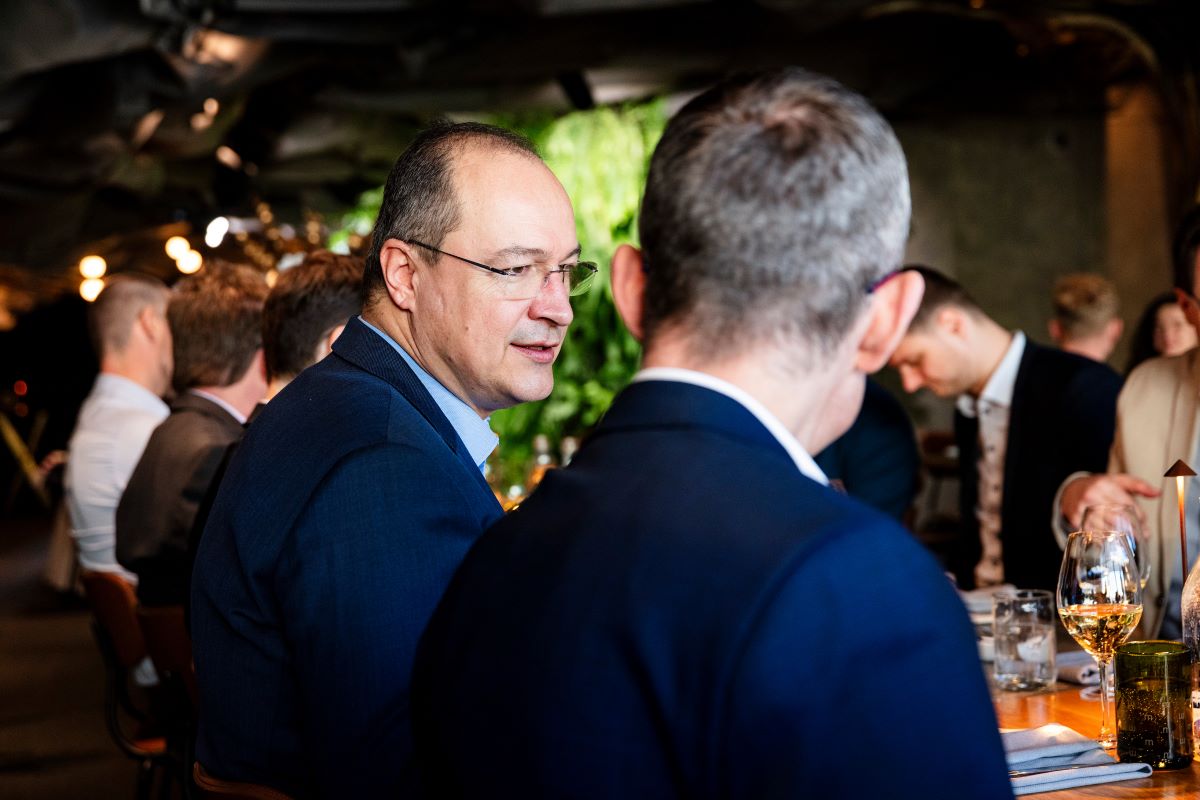Joining VINCI Energies gave us room to grow, say founders of INTECHNOLOGY
The field of building services combines elements of construction and mechanical engineering. The combination of the two brought Ladislav Kočí and Jiří Krepindl together professionally nearly two decades ago. In 2011, they founded INTECHNOLOGY. This March, the company became part of the VINCI Energies group. Both founders are staying on and plan to continue developing the areas in which “their” company excels, in a very promising market.
“Technical progress is unstoppable, and it’s strongly felt across the construction industry. The key issue is for buildings to be functional, modern, environmentally friendly, and energy-efficient. That represents enormous potential, and it’s still growing,” they both agree.
You founded INTECHNOLOGY in 2011, which is still relatively recently. How did it come about?
JK: We met while working for a previous employer, who at the time was a leader in air handling technology in Hradec Králové. I had been running my own business up until then and was looking for something more settled.
LK: Our motivation to start our own company came when a new owner – an investment group – entered the business and changed its direction. In the end, three of us left – the two of us and the financial director.
What was your vision when establishing INTECHNOLOGY?
JK: We wanted to make the most of our experience, which now spans over 35 years. Our plan was to continue in the same field but on a smaller scale. We started with various types of projects, and for a time we specialised in building control rooms connected to data collection systems. Around two-thirds of our work was implementation projects in building services.
LK: In many ways, it was a mental reset for us in the beginning. We went through the whole journey all over again. By day we were on building sites, and by night we were preparing bids. We had contacts and the trust of clients. That helped us grow. Gradually, we began hiring employees and grew organically.


In 2024, your turnover was about €10 million. That’s quite dynamic growth for a business that started with just three people. How did you manage it?
LK: In the first few years, our turnover was about CZK 5–8 million.
JK: What mattered was that even when turnover was low, we already had a clear idea of how the business should function. From the very beginning, we built the company with an emphasis on structured data and clear financial processes. We wanted everything structured. Even when we hired our first employees, their roles were clearly defined. We knew exactly how we wanted things to be organised and managed.
LK: I had experience with ISO 9001 implementation at two of my previous employers, including KASTT, which we’ve now joined as part of VINCI Energies. I knew what it meant to organise and document work processes. Although we didn’t seek certification, we set up all our processes as if we were certified. We were able to learn from previous experience. Building a company from the ground up was a unique opportunity in that sense.
One of you comes from construction, the other from mechanical engineering. Is that a good combination in building services?
LK: At construction college, we were told that if we wanted to work in building services, we should study mechanical engineering at university. My colleague took the exact opposite path.
JK: I originally studied mechanical engineering, entering CTU intending to focus on thermal and nuclear systems. But one of the programmes at the Faculty of Mechanical Engineering had links to construction — building services. I transferred there. While writing my thesis, I was given the opportunity by Josef Cholasta, a respected air handling expert, to use a computer at his company. I started working there in 1993.
INTECHNOLOGY is known for its strength in measurement and control. How did that specialisation come about?
JK: Early in my career, I worked as a ventilation system designer. It was a comprehensive job that involved project preparation. I quickly saw a huge opportunity in measurement and control. There was no company capable of ensuring that the systems we designed actually functioned properly. That became my focus in my first business — my first entrepreneurial experience.
You mentioned a third co-founder. But now there are two of you.
JK: Yes, the colleague who co-founded INTECHNOLOGY with us left fairly early on, in 2020. He was in charge of operations and finance. It was a tough time — we had to take over all his responsibilities. For me, that meant shifting from a technical role to financial leadership.
LK: 2020 wasn’t easy for us, but it was also motivating. It was a new challenge — to stay on the market and ensure our customers didn’t feel any negative impact from such a major change. And we managed it.

You’ve both been in the building services and HVAC field for over 30 years. How has the field evolved?
LK: Technical progress is unstoppable, and it’s very apparent across the construction industry. New ways are constantly emerging to make buildings more functional, modern, ecological, and efficient. Paradoxically, the COVID period had a positive impact here, particularly in control systems, such as remote access for building management. From my point of view, it’s a very attractive and prestigious sector.
Has the attitude of investors towards building services and HVAC changed? Do they realise how vital this technology is in modern buildings?
LK: That’s one of our roles — convincing investors that if they underestimate this area or try to cut corners, it will come back to bite them. Operational costs should concern them more than investment costs. Unfortunately, the market still often focuses on upfront investment as the main criterion. The general contractor usually has the final say, and for them, investment cost is the deciding factor, often at the expense of future operating costs.
JK: Building services suffer from the lack of an active professional chamber to represent the field, set standards, and advocate for its business interests. Often we have to come up with technical solutions that must work but still meet budget constraints.
LK: On several occasions, we’ve declined a project because of this.

Is building long-term, direct relationships with investors the way forward?
LK: Yes, and we actively pursue that. If we’re dealing directly with an investor who knows what they want and is willing to invest properly, it’s ideal. Such investors often come back to us.
JK: Right now, we’re seeing this with clients for whom we previously completed major projects and implemented our technologies. They’re happy with the results and are now reaching out to us directly for upcoming developments.
In March 2025, your company became part of VINCI Energies. Why did you choose to partner with them?
LK: First, we wanted an investor who would help develop the business in our field, not a financial investor like a fund that only wants performance without offering support. Secondly, we saw an opportunity for further growth within the group. We realised we were reaching a point where our growth would begin to slow. And finally, there was the prospect of partnering with KASTT.
KASTT has been part of VINCI Energies for over 20 years and operates in the same field. Do you know each other?
LK: I used to work at KASTT. We knew we’d be joining forces with someone who understands our industry, is active in it, and wants to keep developing. Our offices are quite close to each other. We know each other personally. That was certainly a big plus.
What will this partnership with KASTT bring?
LK: I believe it will be mutually beneficial. We need to strengthen our design capabilities, which is KASTT’s strength. Conversely, we’re stronger in project implementation. We supply many air handling units that include rotary heat exchangers, which KASTT manufactures. I also see great potential in terms of personnel, giving employees room to grow and improving their working conditions.
JK: From a business perspective, the merger gives us a stronger position in the market. We’re becoming a more attractive contractor capable of delivering large-scale projects, something few firms in the building services sector can offer.

